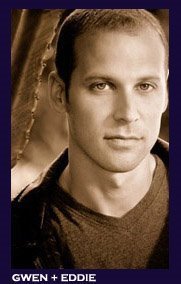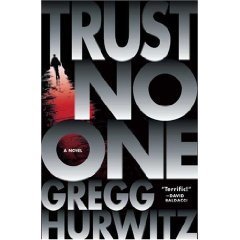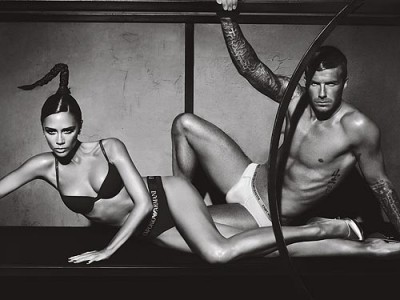Matt Rees's Blog - Posts Tagged "los"
The Writing Life interview: Gregg Hurwitz

Gregg Hurwitz is the kind of guy other guys would like to be. Hollywood handsome, an accomplished athlete with a tremendous academic record, successful in his chosen field. He’s also the kind of writer other writers would like to be. His thrillers are intricate, thought-provoking, and breathlessly paced. His new book Trust No One, which I reviewed last week, will be out in June, and it’s red hot. Gregg took time out from the busy publicity schedule in advance of his new novel to tell me his views on writing and the life he lives around it.
How long did it take you to get published?
I was very fortunate—more fortunate than I knew at the time. I wrote my first book in college, revised it while getting a one-year masters (in Shakespearean tragedy—hurray for useful degrees!), and sold it shortly after. So I never had to find respectable work.
Would you recommend any books on writing?
I’d recommend reading lots of novels.
What’s a typical writing day?
Up at 7, writing by 8. Work all day. Finish between 4 and 8, depending on deadlines. Sometimes a night shift too if deadlines are threatening.
Plug your latest book. What’s it about? Why’s it so great?
Well, I’ll give you a rundown of the first chapter.

Nick Horrigan, an average guy, awakens in the middle of the night when he thinks he sees a watery blue light along his ceiling. He blinks, and it’s gone. He gets up, rubbing his eyes, crosses into the main room, and looks through the sliding glass door onto the balcony. A black rope is hanging over the lip of the roof and lies coiled on the balcony floor. He opens the slider, steps out, closing the screen behind him.
Down below he sees dark sedans lining the curb on either side, and cop cars with their lights now turned off. Before he can react, the rope twitches, and a guy clad in full SWAT gear rappels off the roof and—not seeing Nick—hammers him in the chest with both boots. Nick soars back into his apartment, ripping the screen from the frame, and lands on his back. His front door flies out of the frame like a hurricane hit on the other side, and slides to within an inch of his nose. And before he can catch his breath, a full SWAT team storms the apartment.
The lead agent grabs him, asks, “Are you Nick Horrigan?” Nick still can’t catch his breath, so he nods. They shove a photo in front of his face. “When’s the last time you’ve had contact with this man?” Nicks says, “I’ve never seen him before.” They tug him to his feet. He’s barefoot, in pajama bottoms. He’s dragged outside. Cop cars everywhere. Neighbors lining the sidewalk. A loud thrumming shakes the air and then the palm trees behind his building light up. A helicopter rolls into view and sets down on the end of his cul-de-sac. He’s dragged toward it, and finally he stops, says, “You can’t just take me. Where the hell am I going?”
And the lead agent replies, “A terrorist has just seized control of the San Onofre nuclear power plant. He’s threatening to blow it up. And the only person he’ll talk to is you.”
And there we end chapter one. I think the thing about this book that made it so much fun to write is its velocity. I really wanted it to move like a freight train, while not sacrificing character. So what took the most work was to keep that pacing tight while also delving into character. I hope readers will find I was successful.
How much of what you do is:
a) formula dictated by the genre within which you write?
b) formula you developed yourself and stuck with?
c) as close to complete originality as it’s possible to get each time?
That’s an interesting question. It’s very hard for me to distinguish because I’ve always been drawn to genre. And to structure. I love Shakespeare, for instance, and he was clearly working within very clearly defined conventions and structures, but also as original as one can get. For me I don’t break it down the way you lay out above. I find a story that I can sink my teeth into, and then I try to let the story guide me to its logical shape. The metaphor I think of is lying down on a towel at the beach. At first it’s uncomfortable and you sort of settle your body down, move the sand from beneath your head, find a comfortable mold for your body. That’s the process of getting to a good story—a lot of squirming and adjustment so it can lie comfortably.
What’s your favorite sentence in all literature, and why?
Molly Bloom’s soliloquy at the end of Ulysses, ending with “Yes I said yes I will yes.” Because if you have to pick one sentence, why not choose one with great stamina? Also, I think the thawing of that relationship is so human and intimate and wonderful, and here, her remembered lovemaking is so tender after everything they’ve been through. Plus, what better way to convey an orgasm?
What’s the best descriptive image in all literature?
Benji in The Sound and the Fury: "It was two now, and then one in the swing." The greatest description of a kiss, from Benji’s limited perspective.
Who’s the greatest stylist currently writing?
Boy, I don’t know. I haven’t read everyone. Louis Begley is pretty staggering. To jump to non-fiction, Christopher Hitchens makes my jaw drop. And James Wolcott is the perfect social commentator. For crime fiction, it still goes to Thomas Harris (for Red Dragon), though Motherless Brooklyn also blew my hair back; after writing that, Lethem must’ve taken a victory lap.
Who’s the greatest plotter currently writing?
I am tempted to answer with a name from politics.
How much research is involved in each of your books?
A good amount. For various books, I’ve gone undercover into mind-control cults, sneaked onto demolition ranges with Navy SEALs to blow up cars, gone up in stunt planes. When I’m dug into a story, my foolishness knows no bounds.
Where’d you get the idea for your main character?
For me, when character collides with plot is when I know I have a book. And so I thought of Nick waking up to this SWAT team storming his apartment in the middle of the night—your classic Everyman in an impossible situation, like Jimmy Stewart in a Hitchcock flick. And then I thought: what if something had happened in his past that, rather than this being a surprise out of the blue, was something he always feared would happen? So that when they drag him in his boxers to the waiting helicopter, while he knows nothing about what’s happening, he DOES know that he’s been marked in a manner since his childhood.
What’s the best idea for marketing a book you can do yourself?
Sandwich boards. Or hide hundred dollar bills in the pages.
What’s your experience with being translated?
I have great relationships with my foreign publishers. I went to Moscow and St. Petersburg recently for book festivals, which was a blast. But what’s funny is: when you’re translated into a language you can’t read, it’s like collaborating with someone when you can’t see the outcome. A writer is very reliant on the talented men and women who translate his work—you go on trust and pray that they have a good ear for the cadence of your writing. And if they don’t, you’ll never know!
Do you live entirely off your writing? How many books did you write before could make a living at it?
Yes. I’ve been quite fortunate. I’ve been writing full-time since I sold my first.
How many books did you write before you were published?
I sold my first, not counting Willie, Julie, and the Case of the Buried Treasure (written in third grade). I’m still shopping that one with little luck.
What’s the strangest thing that happened to you on a book tour?
I was in Minneapolis the day of the bridge collapse, and I was supposed to be going over the bridge at that moment, but my driver took a detour to dodge traffic.
What’s your weirdest idea for a book you’ll never get to publish?
Baseball haiku.
Beckham guest posts on my crime blog

I don’t like soccer, but I do have a soft spot for David Beckham. Let me explain.
My father-in-law told me the other day he was looking forward to relaxing in front of an American football game. The New York Giants were playing another group of steroidal mutants. Though it was the end of the season, eight teams were still in for the playoffs. “So the games have some meaning,” said Ike.
Of course, I know about meaningless occasions—I covered the Mideast peace process for more than a decade. I saw what Ike was getting at, but it made me think about the way we search for meaning in life.
Which lead me to David Beckham.
Some of you (New York Giants fans, for example) may have no idea who he is. Well, he’s a soccer player. His teams: England, Manchester United, Real Madrid, and presently the LA Galaxy.
Some of you (Giants types, again) may have no idea what the LA Galaxy is. Frankly neither do I. They play soccer. Not so very well, compared to Manchester and Madrid, but well enough to make the final of the US Major League Soccer thingy this year.
What’s a nice boy from the East End of London doing prancing about in a second-rate league in a country that traditionally requires its major sportsmen to be either 300 pounds, 7-feet tall, chewing-tobacco addicts, or toothless? (You know which sports I mean.)
The answer: he’s having a bloody good time.
I made the connection recently while heading through Rome’s Termini rail station. The main concourse was plastered with enormous billboards pushing a particular brand of underwear. Sporting their skivvies, tanned to an unnatural degree, from platform 1 to platform 25: David and his distressingly ferrel wife Victoria, probably the least interesting of the group of singers once called The Spice Girls. (The most interesting ones have, since splitting up the group, appeared on the London stage and claimed to have fathered Eddie Murphy’s love child.)
David, or “Becks” as he’s known to British tabloids, squeezed his chunky little abs and had his hair slicked down for the photos. He looked like Herman Goering’s wet dream. Right down to the strange traces of a Hitlerian mustache and the feathering of pubic hair creeping over the top of his tightie whities.
My first instinct was to be thankful that Israel’s train system is so bad I never find myself on a station concourse, forced to regard the posturings of ill-educated millionaires and their over-priced grape-smugglers.
But as my train rumbled south to Naples, I reconsidered.
I like the fact that Becks has, essentially, put football behind him and gone off to ply his trade in a country where his celebrity is all he has. Only when you’ve left the youthful urge to “compete” can you uncover what really makes you tick. In my case that meant ditching journalism for fiction; for Becks, it was dropping out of European soccer.
He isn’t competing for “meaningful” goals like the European Champions League. He played in the final of the MLS, but to most of the world’s soccer buffs that’s somewhat less important than women’s beach soccer.
It’s a sharp contrast to his former teammates who slog through the English winter for the chance to get kicked black and blue by the best defenses in Italy, while enduring a spray of spittle and swear-words each time they approach the “fans” at the sidelines.
No one wants to see them in their underwear.
All of which leads me to the conclusion that Becks has something in common with we International Crime Authors on this blog. We’ve eschewed the traditional writing route (whatever that is, but it seems to involve going to the University of Iowa—no, thanks) and we often write about obscure places and un-American people that make our agents groan. That is, as Colin Cotterill wrote here last week, heroes who can’t reasonably be played in a movie by anyone on the Hollywood A-list for reasons of ethnicity. (Though my wife maintains Al Pacino would do a good job as Omar Yussef, my Palestinian detective.)
And so Becks has taken himself off to a place where he can live a life more interesting than the one he left behind. Not a smart career move, many journalists wrote, when he crossed the Atlantic. Like writing a novel set in the Palestinian town of Nablus, which apparently is a gap on the map to most Americans.
So I say, Becks, try putting together a slim volume of noir. Throw in a few lines about “heading south on La Cienaga,” dropping in at a boutique on Rodeo Drive, and winding along Mulholland for a party at Madonna’s place. Some nude sunbathing with Nic Cage on a deck overlooking the beach at Malibu. Oh and it’s a mystery, so don’t forget the victim: maybe a former British pop singer found dead in Emporio Armani underwear, preferably in the first chapter before we have to hear her speak.
Do this, and we’ll be prepared to offer you a spot as a guest blogger.
As for me, I’ve been working out, swimming, doing some pilates. What about a contract for underwear modeling? I currently wear Celio, but I’m prepared to endorse a wide range of “banana hammocks.” Offers to the comments section of this blog, please.



